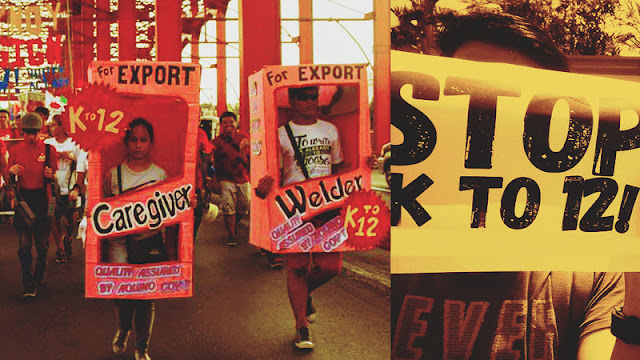Tracking Promotes Inequity in Education
"...In the coming years, we should build on that progress, by providing Pre-K for all, offering every student the hands-on computer science and math classes that make them job-ready on day one, and we should recruit and support more great teachers for our kids. And we have to make college affordable for every American...." The word "every" appears twice in the above two sentences of Obama's last State of the Union address. The word "every" speaks of equity, the most important principle in public education. Of course, equity is very difficult to achieve especially in a world where competition reigns supreme. Inequalities persist. Educational systems all over the world may claim efforts to promote equity yet cling on schemes that not only fail to support but also undermine such efforts.
It is is timely to reiterate a previous post on this blog:
The relationship between socio-economic status and educational attainment remains strong. Research is clear on one factor that increases the influence of poverty on education: tracking. Citing previous published papers in this area, an international team of researchers reminds us of the following in a paper published in the American Education Research Journal:
Research on the effect of tracking has shown two processes by which this transmission of disadvantage occurs. First, empirical research suggests that the more and earlier the schooling system is stratified, the more young people’s expectations are determined and constrained by their early achievement (Buchmann & Dalton, 2002; Buchmann & Park, 2009). Second, stratification tends to be associated with lower educational expectations among less privileged students (see Brunello & Checchi, 2007; Mateju, Smith, Soukup, & Basl, 2007; Pfeffer, 2008).The paper then presents new findings using data from the Program for International Student Assessment (PISA). Their conclusion:
"The results from this study provide broad support for our hypothesis that socioeconomic status differentials in educational opportunities are larger in countries with ability or curricular stratification."Tracking exacerbates inequity. Yet, educational systems continue to stratify. The new K to 12 curriculum of the Department of Education in the Philippines is one glaring example:
 |
| Above copied from Suspend K to 12 at change.org |
The last two years of DepEd's K to 12 offer four different tracks. Young students are therefore required to consider what career they want to pursue later in life. The tracks share a set of core courses, but the differences still matter and the question of how pupils can thoughtfully consider which track to choose remains to be addressed. In 2014, a study made by the Department of Labor and Employment in the Philippines recommended the opening of several jobs in the Philippines. One of the occupations listed as suffering from shortage is guidance counseling. With K to 12, this shortage clearly would be felt more strongly... ...It is not straightforward to predict what the future holds especially in terms of careers to choose. This only highlights the importance of a basic education that does not confine students to a limited set of options. The shortage in guidance counselors combined with the high specificity of tracks in senior high school are obvious weaknesses in DepEd's K to 12.
Comments
Post a Comment